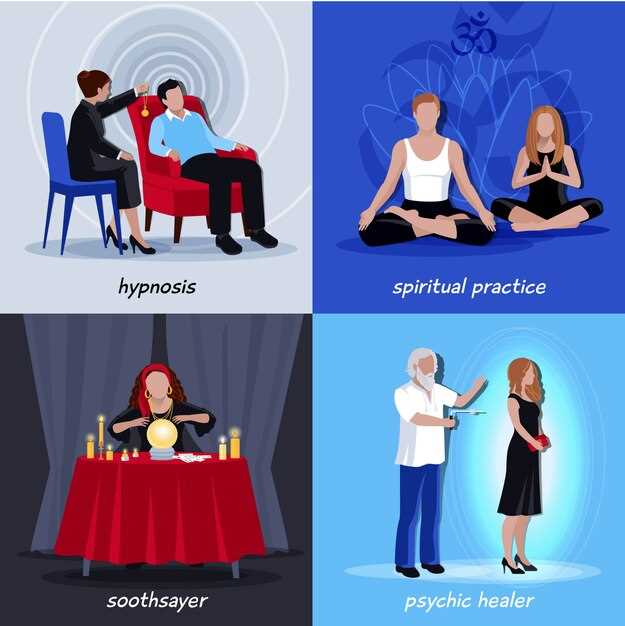
Begin with a 10-minute mindful check-in to observe mood, not react to it. Isto abordagem flows from evidence showing awareness cuts impulsive choices. Use a simple 0–10 scale to note energy, sleep, appetite; track status over weeks to see patterns. Many people report mood fluctuations during changes in status; awareness helps soften ambivalence, reduce loss. This process can ensure you stay aligned with what you value rather than chase quick validation on apps.
Choose concrete activities to fill silence. After work hours, join a class; take a walk; volunteer; these experiences boost mood, widen social circles, reduce loss. When you chose to shift patterns away from chasing status in apps, you gain mastery over daily life. Keep a simple log of experiences to document progress; this источник becomes evidence that change is possible.
Preserve healthy relationships by staying open to change. Regular check-ins among trusted friends provide a stable base; a ótimo way to monitor ambivalence, mood shifts, fear of loss. A plan to stay connected reduces the lure of rushed commitments. If a social circle feels stale, leave a few apps; the point is to create ongoing connection beyond screens.
Focus on finding meaning in daily routine. A mindful approach means noticing what sustains you besides romance: hobbies, skill-building, volunteering. Researchers report that deliberate attention to values reduces ambivalence; it helps turn loss into a signal for change. What matters is consistency; a small, reliable practice each day builds resilience.
Reframe setbacks as data rather than failure. Each experience offers lessons: what you observed, what you chose, what you will adjust. Treat past relationships as sources of insight; they gave clues about preferences, boundaries, what you value in care. This mindset lowers self-judgment, keeps you moving toward meaningful connections.
Maintain a practical plan for daily vitality. Sleep, nutrition, movement matter; ensure regular meals, light exercise, sunlight. If you face ambivalence, schedule a weekly meetup; progress is often cumulative, not instant. The status you hold today is a point you chose; stay consistent yields growth, not abrupt life changes.
Practical, Actionable Guide for Singles
Begin with a concrete daily routine that prioritizes self-care and social connection. theres a simple truth: small, steady steps beat big, sporadic bursts. A thing to remember: your days stay steadier when you build a routine around three pillars: movement, learning, and contact with others. This approach has worked along years for many people, and it is designed to be sustainable rather than a quick fix.
Make a weekly plan with concrete targets: two 30-minute workouts, one learning block, and one check-in with a friend. The thing is to start small and stay consistent. If youre using apps to connect, pick 1-2 platforms and limit scrolling time to a maximum 20 minutes per day to avoid fatigue. Reach out to someone you havent spoken to in a while and offer a quick check-in; this creates opportunity to rebuild connection and support.
Build your support by inviting one friend to a regular activity, like a walk, a class, or a coffee. Been consistent with invitations matters: the more you make them happen, the more likely you are to maintain relationships long term. To ensure momentum, set a recurring plan for the same day each week and track what worked.
Use practical self-checks to monitor mood and energy. Check in each evening: what helped you today, what drained you, and what you want to do differently tomorrow. Stay curious about your feelings, and write 1-2 sentences in a short journal; this builds yourself resilience and gives you a reference for years to come.
Take on a small project that gives you a sense of purpose: volunteer, learn a skill, or mentor someone. This is an opportunity to meet new people, stay engaged, and build a steady source of value – istредничний источник of calm when days feel long.
Make sure to track progress toward your goals. Reached micro-milestones, like maintaining a habit for a full week, then celebrate with a simple reward. Youre making progress–and many years have shown that momentum grows when you keep showing up for yourself.
Label Emotions Quickly to Reduce Overwhelm
Label emotions within 5 seconds after they surface; choose just a one-word label such as sad, anxious, or frustrated.
This quick labeling reduces mental load; likely preventing escalation in tense moments; instead, it supports healthier reacting patterns.
Use a 3-step routine: name the feeling; assess its health impact; choose a next move that restores balance.
In a team context, labeling becomes a shared practice, redefining their status quo toward closure.
Here is a starter set of labels to begin with: fear, sadness, anger, anxiety, frustration, loneliness, relief, hope, excitement.
embrace their emotions; accepting the status; redefining balance; leaving behind patterns that harm health; this is a vital step.
Finding closure becomes likely; the label made space for a clearer next move; mood improves.
Rather than dwelling, leave behind leftovers; those patterns never serve.
Handle triggers here without stepping into overload.
Together this becomes a team practice; progress feels tangible.
| Emoção | Label | Quick Move |
|---|---|---|
| Fear | Fear | Name; 3 breaths; observe |
| Loneliness | Loneliness | Name; brief contact plan |
| Anger | Anger | Name; pause; reset pace |
| Hope | Hope | Name; breathe; reorient |
Build Daily Routines That Fight Loneliness
Schedule a 20-minute morning check-in to set balance as a theme for the day; note one specific area where you could grow; write a thought you want to reframe later.
- Morning check-in: set balance as a theme for the day; list one personal goal; choose a specific action; record a thought that could block connection; reframe it into a plan for a small interaction.
- Midday contact: reach out to one other person; propose a 10-minute chat; mention an experience you would be discussing.
- Evening reflection: recount three moments of happiness here; consider personal progress; discussing whether you want more support tomorrow.
- Weekly trips or experiences: schedule a brief outing in an area new to routine; choose something different; note what experiences moved you toward belonging; this can feel rewarding.
- Self care moment: allocate a cuddle by a pet or a hug from a friend; weave a ritual such as a warm drink, a short walk, or music that supports mood.
There is value in small steps; usually these routines become part of a whole that helps you feel less unable to connect; those small steps could transform private experiences into shared moments; you deserve happiness; these routines help you build balance in personal areas of life; a trusted source said small routines matter.
Remap Self-Worth Beyond Relationship Status
Make this one change today: think of your value as whole, independent of whether you’re dating or single. This awareness usually dissolves the habit of defining yourself by a partner’s presence. Here you start validating yourself through actions, not status.
If isolation hits, enter a small action that demonstrates capability: step into a new activity, start a project, or reconnect through someone you know in the community. Each stepping small shows you can build meaning without relying on others. You are not alone. This can be done together alongside a friend.
Há significado no progresso pessoal; quando você aprende novas habilidades, você transforma o fracasso em feedback, provando para si mesmo que você importa por razões que não têm nada a ver com um parceiro, um caminho de aprendizado. Seu valor reside em mais do que um único momento; não é apenas sobre romance. Aqui, o aprendizado é uma expansão gradual de seu senso de si mesmo.
Construir uma rotina que reforce a autonomia ajuda você a se sentir livre. Faça algo tangível a cada dia que você possa apontar como evidência de sua capacidade; construa algo, termine um projeto ou aprofunde um hobby. Escolha este caminho; é melhor do que buscar elogios externos.
Se você busca o respeito dos outros, você arrisca um senso de auto-estima frágil. Em vez disso, cultive padrões que você mesmo possa alcançar. O resultado é uma confiança constante que torna as conexões futuras mais fortes. Esse é o ponto: seu valor vem de dentro, não da validação externa. Uma pessoa que respeitaria sua independência atrairá o tipo certo de atenção.
Construir relacionamentos é uma dimensão, mas você também precisa investir em laços não românticos. Encontre um amigo para um café, treine um grupo de jovens ou contribua para uma causa. Esses passos melhoram seu humor; eles lhe dão uma métrica além do status de namoro, tornando você mais bem preparado para parceiros autênticos quando eles aparecerem.
Aqui você pode acompanhar o progresso: mantenha um registro simples de três itens a cada dia – aprender algo novo, ajudar alguém ou entrar em um novo ambiente. Com o tempo, você perceberá que seu amor-próprio não está ligado a um único resultado ou relacionamento.
Ser solteiro é uma fase, não um veredito. Foque em construir significado no trabalho, criatividade, serviço; você se move em direção a uma liberdade que o torna mais resiliente em qualquer relacionamento que você escolher mais tarde. Recursos necessários são tempo, paciência, apoio.
Use um Desafio de Pensamento Rápido para Reformular a Rejeição

Aqui começando este rápido desafio de pensamento, discutindo sentimentos negativos desencadeados pela rejeição, não permitindo que eles definam sua visão. Qual é a evidência que apoia essa crença; quais contradições surgem? Observe dois fatos de interações recentes que contradizem sua crença e anote-os aqui.
Nunca deixe essa coisa persistir: escreva duas declarações breves que reformulem a cena. Talvez o foco tenha sido mal interpretado, talvez um sinal perdido se torne uma deixa para aprendizado. Procure por pequenas mudanças, depois transfira para uma ação simples que tenha sido útil para interações cotidianas, apenas dois pontos.
Durante os períodos de isolamento, exercícios envolventes ajudam a curar. Veja os pensamentos como clima passageiro; eles permanecem e depois passam. Reestruturar muda a forma como as interações se parecem, enquanto o humor se estabiliza com a prática, produzindo vitórias rápidas.
Recursos envolventes incluem livros, fontes reputáveis, colegas de confiança; isto mantém você centrado aqui, ali. Rastreie o источник de uma crença até uma ocasião concreta – talvez uma interação complicada, uma memória alcançada durante viagens ou um comentário de um colega; então, reformule o significado que você atribui.
Expanda Seu Círculo Social com Passos Pequenos e Realistas

Convide uma pessoa para uma caminhada de 30 minutos esta semana. Você verá uma pequena mudança no humor, um aumento na confiança social, uma sensação de possibilidade que alimenta os planos futuros. Concentre-se no momentum constante; cada passo ajuda você a se sentir capaz, a ajudar a reduzir os sentimentos de isolamento.
- Decisão: escolha um único micro-objetivo a cada semana; as opções incluem um encontro, uma palestra na biblioteca, uma sessão de clube do livro.
- Passo 2: Concentre-se em ouvir; elabore uma pergunta aberta sobre um livro ou hobby favorito.
- Passo 3: Entrar em espaços partilhados: junte-se a uma equipa local, projeto de voluntariado ou workshop.
- Passo 4: Crie uma rotina de calendário simples: participe de dois eventos de baixa pressão por mês; anote tópicos que despertem interesse; registre sentimentos, o que você aprendeu.
- Passo 5: Construa uma equipe ao seu redor; entre em contato com algumas pessoas, proponha uma atividade conjunta, escolha espaços onde você se sinta confortável.
Talvez questões sociais moldem as escolhas; aceitar a perda, o luto surge à medida que a companhia se transforma. O significado vem através de encontrar pequenos momentos de conexão. Você não está sozinho; eu me lembro que o progresso feito reside em passos, não em saltos. Ao atingir marcos, você começa a se sentir mais capaz, mais habilidoso em encontrar significado nas coisas cotidianas. Passos graduais alcançaram mudanças duradouras no humor; os relacionamentos crescem. Concentrar-se no que funciona ajuda você a continuar avançando. Ler livros sobre tópicos que você gosta apoia conversas significativas entre aqueles que você encontra.











